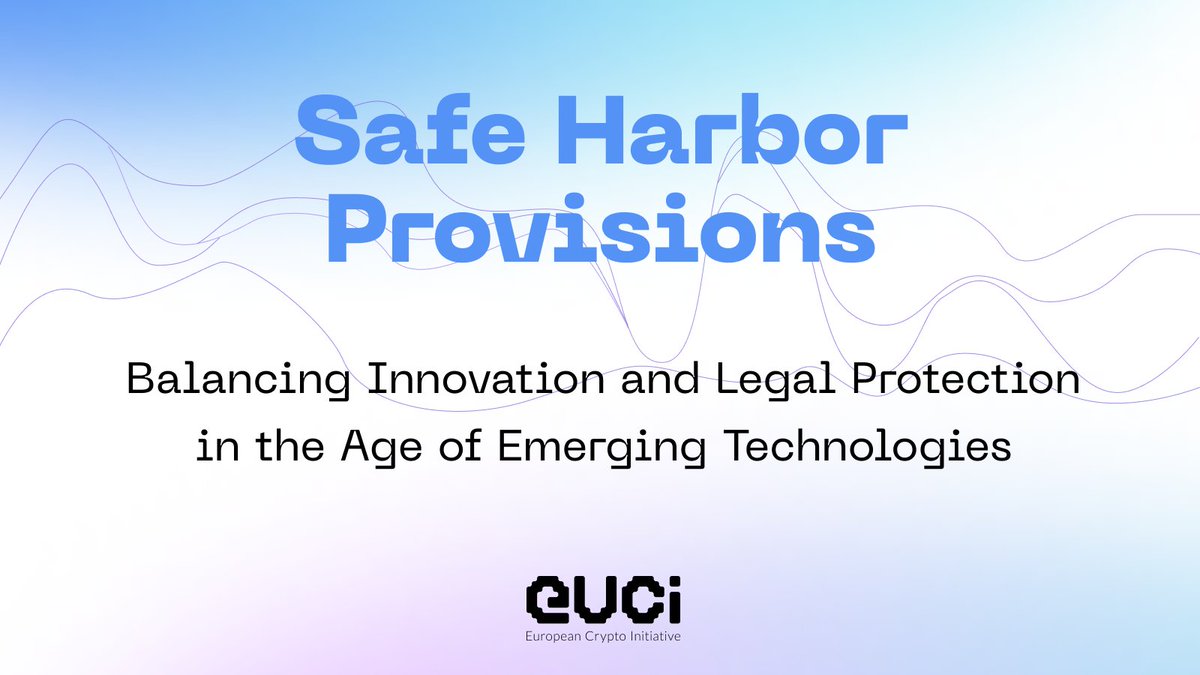1/ In the ever-evolving world of emerging technologies, #SafeHarbor provisions serve a vital role in striking a balance between fostering innovation and providing legal protection for businesses operating in uncertain legal environments 🧵
#CryptoRegulation #EU
#CryptoRegulation #EU

2/ By complying with specific rules or standards, entities can benefit from legal protection, allowing them to focus on promoting innovation in their respective industries.
3/ For instance, the #US Digital Millennium Copyright Act and the European e-Commerce Directive both provide safe harbor provisions aimed at protecting internet service providers from liability for third-party content.
4/ While these provisions differ in their focus and requirements, they ultimately share the common goal of shielding businesses from liability while promoting the growth of emerging technologies.
5/ Another example of safe harbor provisions in action is the now-defunct EU-US Safe Harbor Agreement, which facilitated personal data transfers between the #EU 🇪🇺 and the #US 🇺🇸
6/ Although invalidated by the European Court of Justice due to concerns over inadequate data protection, the agreement highlights the potential for safe harbor provisions to provide legal certainty and predictability in cross-border data transfers.
7/ As we continue to explore the complex landscape of technology regulation, stay tuned for more insights into how safe harbor provisions can contribute to the development of emerging technologies while ensuring legal protection and compliance.
#DataProtection #Regulation
#DataProtection #Regulation
• • •
Missing some Tweet in this thread? You can try to
force a refresh

 Read on Twitter
Read on Twitter










